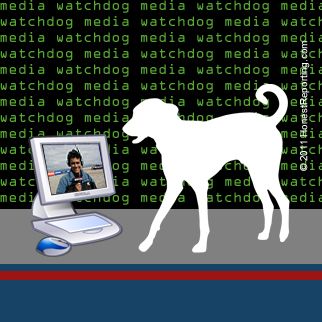Before you start writing, read the article.
All of it.
If you already read the full articles before responding, you can skip the rest of this post. But if you think you can cut corners and still help Israel, think again.
When you don’t read what you’re responding to, editors notice you’re butchering the facts worse than their bureau chief and delete your message (so will I, if you CC your letter to me). Even worse, you diminish the impact of the other, more legitimate letters. You may have the best of intentions, but such letters are counter-productive.

Some letter-writers tell me they don’t have the time to read the articles we critique.
If you fit that category, I’d rather you read the articles and not write. If an article bothers you enough, I think you’ll find the time to take action. You’ll be better-informed to discuss the matter in other situations like work, school, or some public forum. Don’t short-change yourself.
Over an occasional series of posts, I’m going to share my thoughts on how to make your letters to the editor more effective so we can make our voices heard. When you have a handle on the story — the whole story — it shines through in your letter and earns the editor’s respect.

